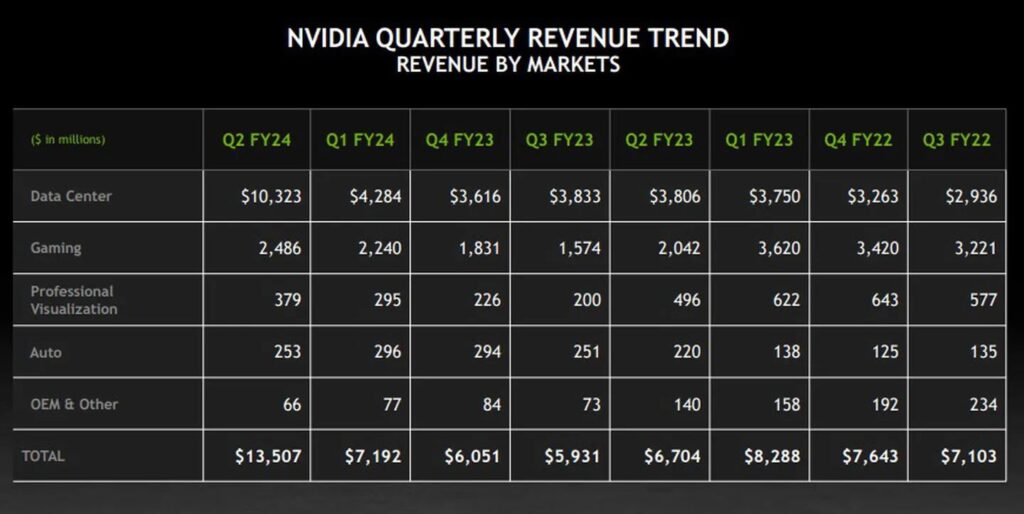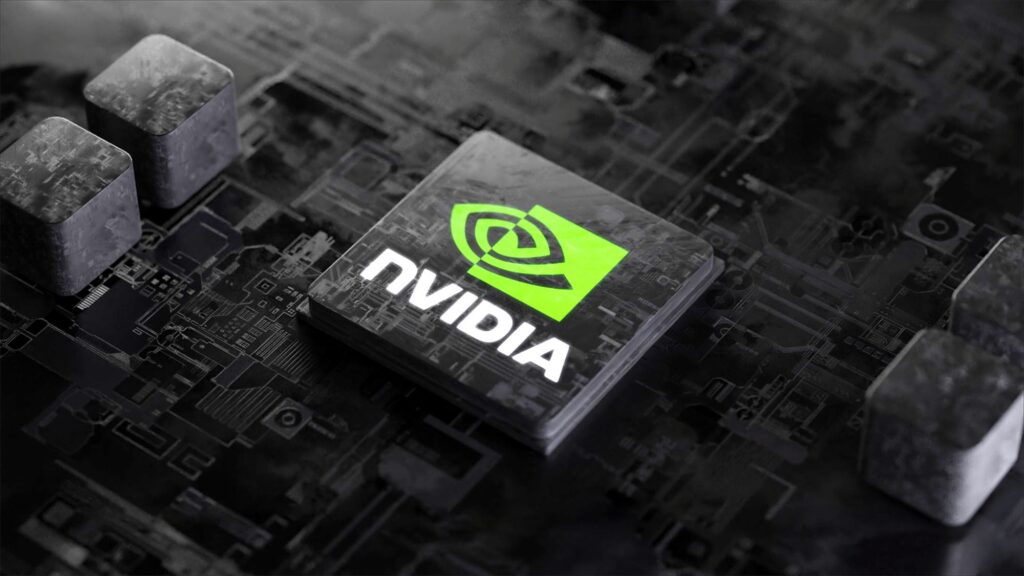In a rapidly evolving technological landscape, Nvidia has set a new benchmark by netting an astounding $6 billion profit from a jaw-dropping $13.5 billion revenue. This comes hot on the heels of its recent induction into the exclusive trillion-dollar company club, alongside giants like Apple, Amazon, Google, and Microsoft.
Skyrocketing Revenues from AI Chips
The unprecedented surge in demand for Nvidia’s generative AI chips has been a game-changer, particularly in an era where the PC industry faces decline. Interestingly, the data center segment alone accounted for a whopping $10.32 billion of the total revenue – that’s more than double in just a quarter! With profits soaring by an incredible 843% YoY, Nvidia’s financial performance has been nothing short of stellar.

A Resurgent Gaming Sector
While the AI boom has been a significant catalyst, Nvidia’s gaming revenue shouldn’t be overlooked. Even though it’s still catching up to pandemic highs, the gaming sector has seen a 22% YoY growth, reaching $2.48 billion. With Nvidia hinting at promising upgrades for gamers, they also pointed out that about 20% of their user base is equipped with an RTX 3060 or superior models.
Anticipated Growth in AI Driven Revenues
Looking forward, Nvidia is optimistic, projecting a revenue of $16 billion in the upcoming quarter. As per Nvidia’s CFO, Colette Kress, this growth is anticipated to be spearheaded by the data center segment. The company’s positive performance has also reflected in its stock price, which surged by 8.5% in after-hour trades.
Upcoming Launches and Market Dynamics
The tech giant has already announced the launch of its next AI chip, the GH200, set for a mid-2024 release. For now, the demand focus remains on existing AI chips. Addressing supply chain dynamics, Kress mentions, “Our supply over the next several quarters will ramp up as we streamline cycle time and collaborate with our supply partners to expand capacity.”
Competition Lags Behind
While Nvidia has been making waves, its competitors, Intel and AMD, are yet to present a formidable challenge in the realm of generative AI silicon. Even though AMD’s MI300 is on the horizon for a possible Q4 launch, both companies are momentarily emphasizing integrating AI features into client chips. Echoing this sentiment, Intel CEO, Pat Gelsinger mentions the goal to “embed AI into every platform we produce.” AMD’s CEO, Lisa Su, further emphasizes AI’s pivotal role, predicting its integration into all AMD products within five years and highlighting it as the primary growth driver.
In conclusion, Nvidia’s monumental success underscores the potential and significance of AI in reshaping the tech industry.












